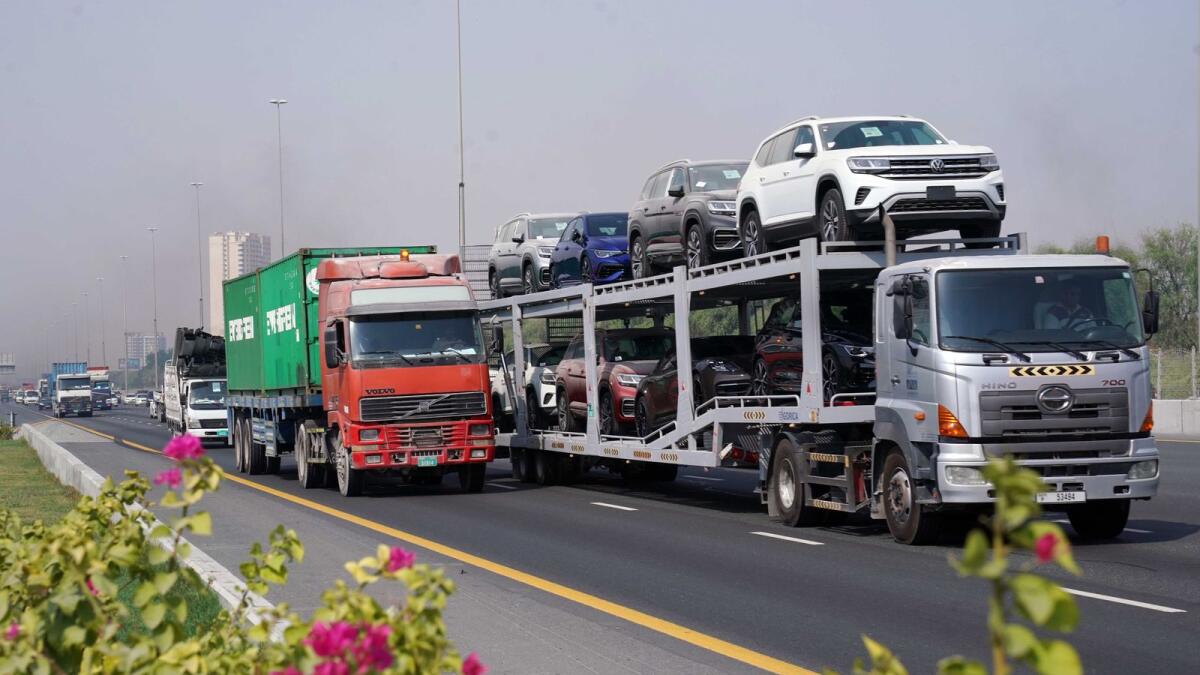Truck owners in the UAE are being urged to register their vehicles in the National Truck and Shipment Tracking System or face hefty fines, according to the Federal Authority for Identity and Citizenship, Customs and Ports Security. Failure to register will result in a Dh1,000 fine for the first month, with an additional Dh100 for each subsequent month of non-compliance, up to a maximum of Dh5,000. The system aims to enhance customs security, improve supply chain compliance, and provide real-time tracking of truck movements across the country.
The National Truck and Shipment Tracking System, managed by the General Administration of Customs, uses electronic tracking devices at ports to monitor the journey of goods from their point of entry to their final destination. In addition to the fines for non-registration, truck owners may also face penalties for various violations. These include fines for companies that fail to renew their registration within 60 days or update their data within 30 days of changes, ranging up to a maximum of Dh2,500. Misleading information during registration, tampering with tracking devices, or unloading items before reaching their destination are also punishable by fines.
Owners of freight transport vehicles, transit trucks, hazardous materials transporters, and other specified trucks are among those affected by the new regulations. Penalties extend to violations such as failing to renew registration, update data, or provide accurate information during the registration process. To avoid fines, truck owners are advised to visit the registration website and complete the necessary steps, including setting up an appointment to install the required tracking devices on their vehicles.
It is important for truck owners in the UAE to comply with the regulations of the National Truck and Shipment Tracking System to avoid hefty fines. Failure to register their vehicles in the system may result in penalties of up to Dh5,000, in addition to other fines for violations such as misleading information during registration or tampering with tracking devices. The system aims to enhance customs security, improve supply chain compliance, and provide real-time tracking of truck movements across the country.
The General Administration of Customs manages the National Truck and Shipment Tracking System, which utilizes electronic tracking devices at ports to monitor the journey of goods from their entry point to their final destination. Truck owners are urged to complete the registration process on the system’s website and install the necessary tracking devices on their vehicles to ensure compliance with the regulations. Penalties for non-registration and other violations apply to a range of truck owners, including those transporting hazardous materials and freight.
Companies that fail to renew their registration within the specified time frame or provide inaccurate information during the registration process may face fines of up to Dh2,500. Truck owners who change their route, driver, or tractor head without notifying the authorities may incur fines between Dh500 and Dh2,000, while unloading items before reaching their destination can result in penalties of Dh5,000 to Dh10,000. It is crucial for truck owners to adhere to the regulations of the National Truck and Shipment Tracking System to avoid financial penalties and ensure the smooth movement of goods across the country.
In conclusion, truck owners in the UAE must register their vehicles in the National Truck and Shipment Tracking System to avoid fines and comply with customs regulations. The system is designed to enhance security, improve supply chain compliance, and provide real-time tracking of truck movements. Failure to register may result in penalties of up to Dh5,000, along with fines for various violations such as misleading information during registration or tampering with tracking devices. Truck owners are advised to visit the registration website, complete the necessary steps, and install the required tracking devices on their vehicles to ensure compliance with the regulations.











